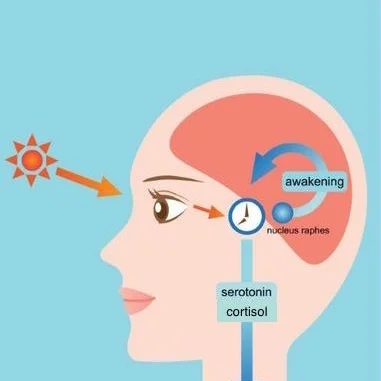LIGHT AND THE BODY
"Light is by far the most important synchronizer of human circadian rhythms, or body clocks"
- Charles Czeisler, Director of sleep medicine, Harvard Medical School
Decades of research from Harvard Medical School, NASA, and other leading institutions around the world have revealed a great deal about how light impacts our health. We designed the Ario Smart Lighting System based on this large body of research, and on recommendations from the National Institutes of Health and American Medical Association.
Amber-toned light with very little blue at the end of the day makes it easier to relax and prepare the body for sleep. This facilitates the release of the hormone melatonin which is inhibited by typical light exposure at night.
Blue-rich light stimulates cortisol and serotonin production in the morning to synchronize circadian rhythm and awaken, and during the day to maintain alertness and improve productivity.
Proper lighting can:
Boost melatonin levels by 400%
Improve sleep
Make you twice as alert during the day
Our body learns what time it is from light in our environment. Today's artificial lights are static, throwing off our body clock by as much as three hours. This affects our sleep, metabolism, mood, and general health. The science of circadian rhythm has been around for centuries. The first mention dates back to 4th century B.C.E. In 2017, Jeffrey C. Hall, Michael Rosbash and Michael W. Young won the Nobel Prize in Physiology and Medicine for discoveries in molecular mechanisms controlling circadian rhythm.


